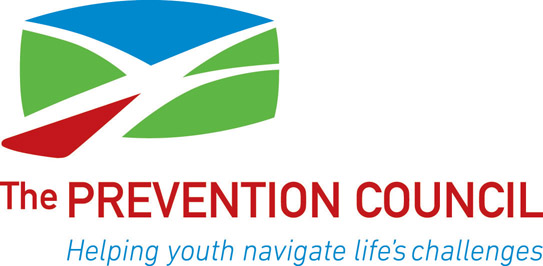Reader’s View
The Saratogian
Published: Sunday, May 12, 2013
Editor’s note: Over the next five days, The Saratogian will collaborate with the Prevention Council as part of National Prevention Week. This week-long observance is an opportunity to raise awareness about substance abuse and mental health issues, to promote prevention efforts, and to educate our local communities about the factors that influence substance use. Prevention Week celebrates the idea that everyone has a role to play in prevention. And in order to be most effective, prevention should be woven into all aspects of young peoples’ lives.
Over the next five days, we will cover the topics of underage drinking, prescription drug use, the teenage brain, hosting underage parties, suicide prevention, and the relevance of mental, emotional, and behavioral health to substance use and abuse.
Do you think underage drinking is a teenage rite of passage? Prevention Council staff hear the following arguments all the time: If teens can vote or serve in the military at 18, why can’t they drink, too? Or, in Europe, kids are allowed to have wine with dinner and it’s not a problem.
We also hear from well-meaning parents who worry that treating alcohol as a forbidden fruit makes it that much more enticing. By forbidding it, parents worry their teens won’t be prepared for social drinking when they leave home after graduation. If we host a party ourselves, the thinking goes, at least we’ll know where our kids are.
Here’s the thing: Over and over, in school districts throughout Saratoga County, student and parent survey results show that the stronger the parental message against underage drinking, the less drinking takes place. International research bears this out, too: Kids who believe their parents would strongly disapprove of their using substances are less likely to use them.
In the middle school grades, our tweens get this message loud and clear. Parents are dead set against alcohol experimentation, and kids know it.
But in high school, when parents start having angst about whether to say “no” altogether or attempt to teach responsible drinking habits, teens detect this waffling. And the absence of strong condemnation is treated as blanket approval.
Here’s what we know from Prevention Council survey data collected in 2010:
• 50 percent of Saratoga County 11-12th graders drink alcohol regularly, exceeding the NYS rate of 44 percent.
• 33 percent of Saratoga County 11-12th graders are binge drinking, exceeding the NYS rate of 28 percent. (Binge drinking is 4 to 5 or more drinks at one social setting.)
• Parents vastly underestimate their teens’ drinking habits.
We also know that teens who use alcohol are much more likely to experience sexual assaults and fights, accidents, alcohol poisoning, and lower school performance. Youth who drink before age 15 are four times more likely to develop alcohol addiction than those who start drinking at 21, according to the National Institutes of Health.
And in answer to those questions about voting and the military? Recent research has shown that the adolescent brain doesn’t finish developing until age 25. We now know that underage drinking damages important brain functions. Just because an 18-year-old has the skills and judgment to vote or perform military service doesn’t mean he’s mature on all fronts.
And what about those European teens who drink wine with dinner?
Research has shown that they are much more likely to binge drink when they’re out with their friends. On the whole, teen binge drinking rates in Europe far exceed our binge drinking rates in the US.
This is a perfect example of how condoning even moderate alcohol use is a very slippery slope. Teens interpret that leeway very loosely. Even if you take away everyone’s keys at an underage drinking party in your home, the message you send by allowing underage drinking at all puts your child at risk for serious heavy drinking — later, elsewhere, in places where you won’t be there to supervise.
Right now is the perfect time to send a strong message against underage drinking. It’s spring and there’s celebration in the air. Proms, graduations, sports banquets, and barbecues are blocked out on our busy calendars. Believe it or not, parents, you are still the most powerful influence in your child’s life — greater than peers, popular music, television, celebrities and the media. Youth who consistently learn about the risks of drugs from their parents are half as likely to use drugs and alcohol than those who do not. So no waffling. Wield your influence wisely. Tomorrow’s topic will be prescription drugs.
For more information, go to www.preventioncouncil. org.
Heather Kisselback
Executive Director
The Prevention Council
